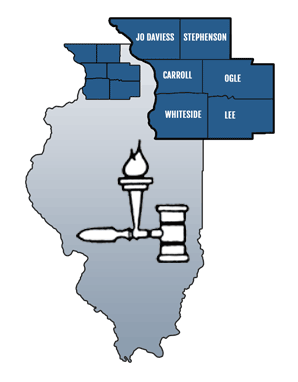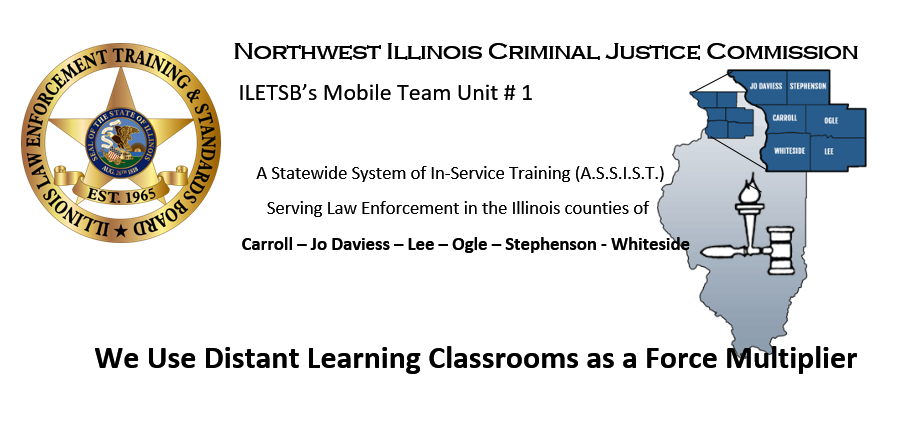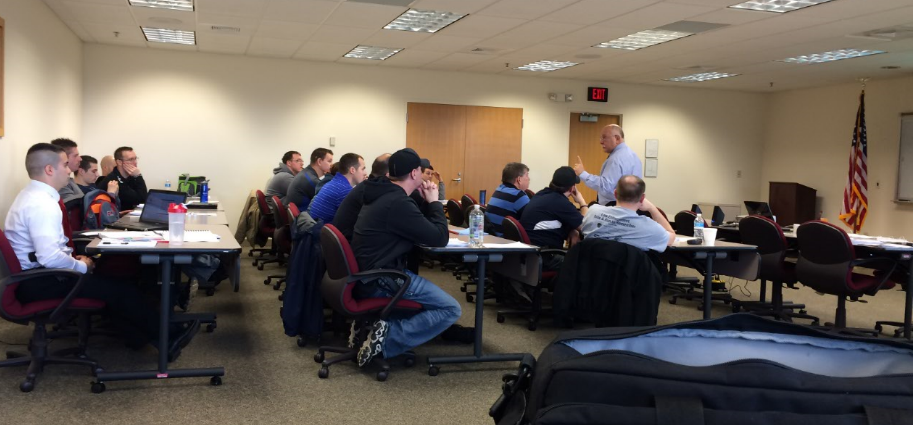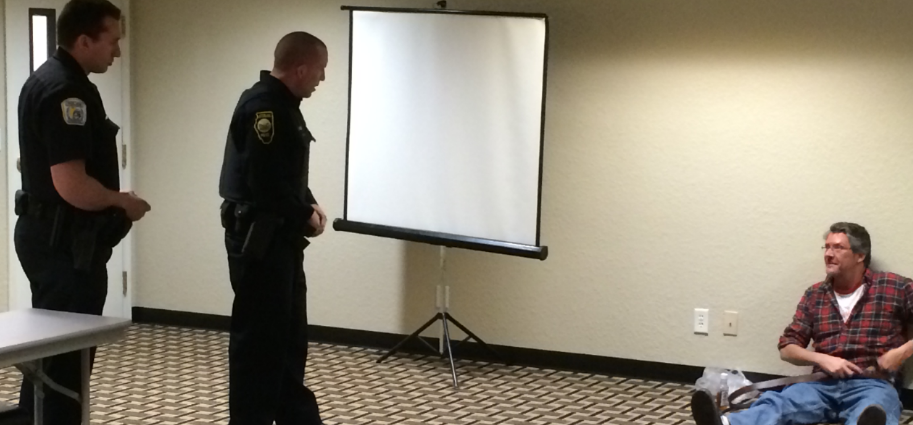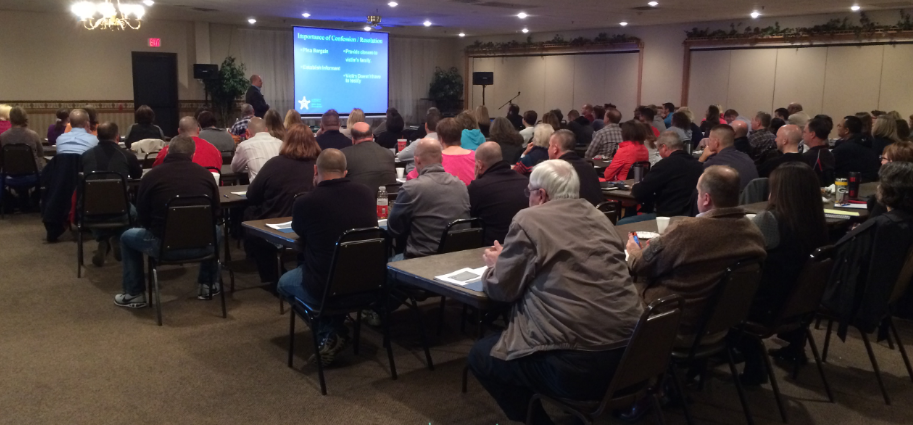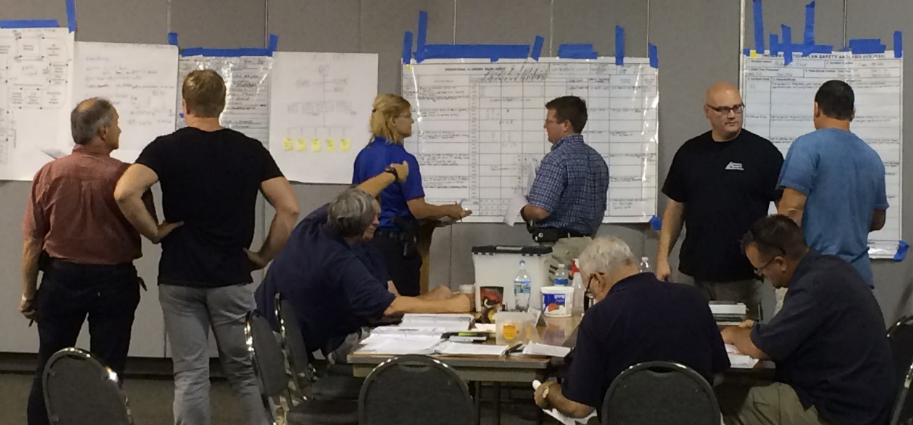2 hr. Making Discipline Stick- Distant Learning session
Registration Deadline: Monday, March 12, 2018
Time: 9:00 AM - 11:00 AM
Distant Learning Only
Members' Fee: $0
Sworn Non-Members' Fee: $0
Non-Members' Fee: $0
DOWNLOAD FILE
Freeport Police Department: 320 W. Exchange Street Freeport, IL
Galena Police Dept.: 311 N. Bench Street Galena, IL
Morrison Police Dept.: 200 W Main St. Morrison, IL
Sterling Police Dept.: 212 3rd Avenue Sterling, IL
Ogle County Sheriff's Office: 202 S 1st St. Oregon, IL
Always register-When there are no registrations for a certain remote location, it will not be staffed.
Course Summary: This sesssion is an abbreviated version of the 8-hour training session
A training opportunity for anyone responsible for investigating or disciplining employee misconduct within a government agency - from first-line supervisors, to human resources personnel, to agency leaders.
Research shows that when disciplinary actions are reviewed by an outside source (i.e. grievance arbitrator or civil service board), public sector discipline is overturned or reduced 50% of the time.
- Address the few “bad apples" in your agency who are responsible for the majority of citizen complaints and internal acts of employee misconduct
- Identify the 5 most common reasons arbitrators give for overturning a public agency's employee discipline
- Make discipline STICK in order to hold employees accountable and give much needed "wake up calls" before performance issues become so serious that termination is required or public safety is threatened.
THIS IS NOT A PUBLIC MEETING
Instructor Information:
Matt Dolan is a licensed attorney in the State of Illinois who specializes in training and advising public safety agencies in matters of personnel management liability. His training focuses on helping agency leaders create sound policies and procedures as a proactive means of minimizing their exposure to costly liability. A member of a law enforcement family dating back three generations, he has trained and advised thousands of public safety professionals throughout the United States in matters of legal liability.
This two hour session will briefly cover the topics found in the outline of the full 8 hour session found below
The vast majority of citizen complaints and internal acts of employee misconduct encountered by government agencies are generated by a small number of problem individuals. It is crucial, therefore, that government agencies can successfully discipline these few “bad apples”.
In other cases, disciplinary action is necessary to hold essentially good employees accountable for misconduct that threatens agency operations. In these cases, making discipline stick is actually in the interest of the employee, as it can serve as a much needed “wake up call” to an employee before performance issues become so serious that termination is required or public safety is threatened.
Unfortunately, research has revealed that when disciplinary actions are reviewed by an outside source (i.e., grievance arbitrator or civil service board), the employer’s discipline is overturned or reduced about half of the time.
This course covers the findings of a DCG study of hundreds of public employee discipline cases that went to arbitration review. This course reveals the five most common reasons arbitrators give for overturning a public agency’s employee discipline. This information is utilized to provide practical steps public employers can take to ensure fairness in their disciplinary processes and significantly increase the likelihood their disciplinary decisions are upheld.
This course is designed for anyone responsible for investigating or disciplining employee misconduct within a government agency, from first-line supervisors to human resources personnel to agency leaders.
Course Objectives:
· The Problem
o The Damage Caused by Toxic Employees—to the Organization, to Co-workers, to Supervisors and to the Public
o Organizational Failure to Address Performance Issues Before Isolated Instances Become Habitual Misconduct
o External Arbitration as a Barrier to Vitally Needed Discipline
· The Research on Grievance Arbitration
o Public Sector Arbitration Outcomes
o Overview of Our Study—Why Do Supervisors Fail to Make Discipline Stick?
· Disproportionate Punishment
o Same Misconduct – Different Outcomes
o What Factors Can and Cannot Be Considered
o The Potential Benefits of Using a Discipline Matrix
· Insufficient Evidence
o “Clear and Convincing” Evidentiary Standard
o Conducting Thorough and Impartial Investigations
o Investigating the Investigators
· Due Process Violations
o Most Common Agency Errors
o Loudermill Rights & The Daugherty Test
· Procedural Violations
o Collective Bargaining Agreements
o State Administrative Rules
· Employee’s Past Record of Good Performance
o Documenting Prior Performance Accurately
o Using the “Objectively Reasonable” Standard
o Demonstrating Resultant Harm to the Organization
· Summary & Conclusion
o What are the Risks Associated with Failing to Discipline where Necessary?
o Taking the Time to Conduct Disciplinary Proceedings the Right Way
o Creating Policies that Encourage Supervisors to Engage in Disciplinary Actions that Stick


